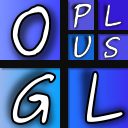Classes | |
| struct | oglplus::ranges::IsRange< Range > |
| Metafunction for checking if a type conforms to the oglplus::Range concept. More... | |
| class | oglplus::ranges::AnyRange< Element > |
| A type erasure for types conforming to the oglplus::Range concept. More... | |
Functions | |
| template<typename Range , typename Func > | |
| Func | oglplus::ranges::ForEach (Range range, Func func) |
Executes a functor on every element in a range. | |
| template<typename Range > | |
| Range | oglplus::ranges::Find (Range range, typename Range::ValueType value) |
| Finds the specified value in a range. More... | |
| template<typename Range , typename Predicate > | |
| Range | oglplus::ranges::FindIf (Range range, Predicate predicate) |
| Finds the first a value satisfying a predicate in a range. More... | |
| template<typename Range , typename Transf > | |
| Transformed< Range, Transf > | oglplus::ranges::Transform (Range range, Transf transf) |
| Transforms a range by an unary function. More... | |
| template<typename Range , typename State , typename Op > | |
| State | oglplus::ranges::Fold (Range range, State state, Op op) |
| Folds the range by using a binary functor and a state value. More... | |
| template<typename Range , typename Predicate > | |
| Filtered< Range, Predicate > | oglplus::ranges::OnlyIf (Range range, Predicate pred) |
| Returns a range containing only elements satisfying a predicate. More... | |
Detailed Description
In situations where immutable ranges of elements need to be handled, OGLplus uses classes conforming to the Range concept. The main advantage of ranges is that basic algorithms working on them can be composed into complex ones more easily.
OGLplus also implements several algorithms for traversing or manipulating ranges and a type erasure for ranges.
- Note
- Range algorithms and utilities are not included by
oglplus/all.hpp. To use them theoglplus/opt/ranges.hppfile must be included.
Function Documentation
| Range oglplus::ranges::Find | ( | Range | range, |
| typename Range::ValueType | value | ||
| ) |
Finds the specified value in a range.
This function traverses a range and stops either if the range is empty or if the specified value is found. The resulting range (either empty or having the specified value as the element at the front) is returned.
References oglplus::Range::Empty(), oglplus::Range::Front(), and oglplus::Range::Next().
| Range oglplus::ranges::FindIf | ( | Range | range, |
| Predicate | predicate | ||
| ) |
Finds the first a value satisfying a predicate in a range.
This function traverses a range and stops either if the range is empty or if a value satisfying the predicate is found. The resulting range (either empty or having the found value as the element at the front) is returned.
| State oglplus::ranges::Fold | ( | Range | range, |
| State | state, | ||
| Op | op | ||
| ) |
Folds the range by using a binary functor and a state value.
Fold updates the initial state by calling the binary operation on it and all elements in the range.
References oglplus::Range::Empty(), oglplus::Range::Front(), and oglplus::Range::Next().
| Filtered<Range, Predicate> oglplus::ranges::OnlyIf | ( | Range | range, |
| Predicate | pred | ||
| ) |
Returns a range containing only elements satisfying a predicate.
OnlyIf returns a range that contains only those elements of the original range, which satisfy the specified predicate.
| Transformed<Range, Transf> oglplus::ranges::Transform | ( | Range | range, |
| Transf | transf | ||
| ) |
Transforms a range by an unary function.
Transform returns a range whose Front function returns the Front value of the original range transformed by transf.
<matus.chochlik -at- fri.uniza.sk>
<chochlik -at -gmail.com>
Documentation generated on Mon Sep 22 2014 by Doxygen (version 1.8.6).
